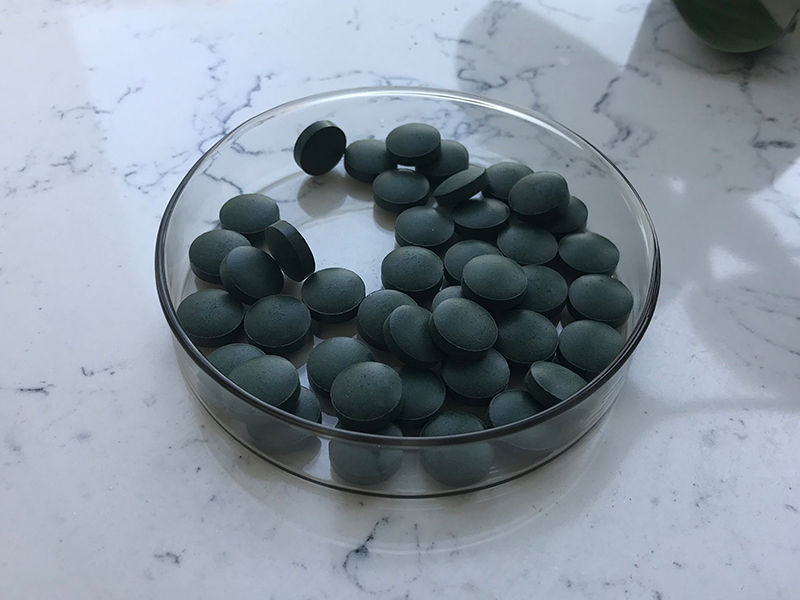Spirulina tablets are dietary supplements made from spirulina, a type of cyanobacteria, or blue-green algae. Spirulina is known for its high nutritional content, including protein, vitamins, minerals, and antioxidants. It is often consumed as a supplement to boost overall health and well-being.
Some of the potential benefits of spirulina tablets include:
Rich source of protein: Spirulina is one of the few plant-based sources of complete protein, meaning it contains all essential amino acids needed by the body.
High in vitamins and minerals: Spirulina tablets are rich in vitamins such as vitamin B12, vitamin K, and beta-carotene, as well as minerals like iron, calcium, magnesium, and potassium.
Antioxidant properties: Spirulina contains antioxidants such as phycocyanin and beta-carotene, which help protect cells from oxidative damage caused by free radicals.

Immune system support: Some research suggests that spirulina may help boost the immune system, potentially reducing the risk of infections and supporting overall immune function.
Anti-inflammatory effects: Spirulina contains compounds with anti-inflammatory properties, which may help reduce inflammation in the body and alleviate symptoms of conditions such as arthritis.
Cholesterol management: Studies have shown that spirulina may help lower LDL (bad) cholesterol levels and increase HDL (good) cholesterol levels, which can help improve heart health.
Spirulina tablets are available in health food stores, pharmacies, and online retailers. It’s essential to follow the recommended dosage instructions and consult with a healthcare professional before starting any new supplement regimen, especially if you have underlying health conditions or are taking medication.
How to use Spirulina Tablets?
Using spirulina tablets is fairly straightforward. Here’s a basic guide:
Select High-Quality Tablets: Ensure you purchase spirulina tablets from a reputable source to ensure quality and purity.
Follow Recommended Dosage: Check the recommended dosage on the packaging or consult with a healthcare professional for guidance. Dosages can vary depending on factors such as age, weight, and health condition.
Take with Water: Swallow the spirulina tablets with a sufficient amount of water. This helps to ensure easy swallowing and aids in digestion.
Timing: It’s generally recommended to take spirulina tablets with meals to aid in absorption and minimize any potential stomach discomfort. However, some people may prefer taking them between meals.

Consistency: For optimal benefits, it’s advisable to take spirulina tablets regularly, as recommended. Consistency is key in experiencing the potential health benefits associated with spirulina.
Store Properly: Keep the spirulina tablets in their original packaging or a tightly sealed container in a cool, dry place away from direct sunlight. This helps to maintain their potency and freshness.
Monitor for Side Effects: While spirulina is generally considered safe for most people, some individuals may experience mild side effects such as nausea, stomach upset, or allergic reactions. If you experience any adverse effects, discontinue use and consult with a healthcare professional.
Remember, while spirulina tablets can be a convenient way to incorporate this nutrient-rich algae into your diet, they should not be used as a substitute for a balanced diet and healthy lifestyle.
